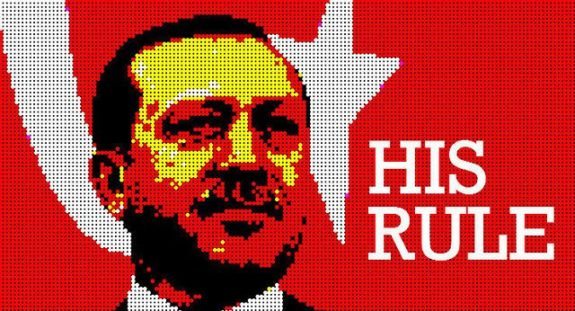
April 17, 2017; The Conversation
President Erdoğan of Turkey has spent his career building up to the powerful position he now holds, and this week’s vote has concentrated his power even more than was previously possible. On Sunday, Turks voted to reform their constitution in favor of “stability,” removing many of the checks on executive power.
They voted to reform over 2,000 laws, including, according to the BBC:
- The role of prime minister will be scrapped. The new post of vice president, possibly two or three, will be created.
- The president becomes the head of the executive, as well as the head of state, and retains ties to a political party. (At the moment, presidents renounce political parties on taking office.)
- He or she will be given sweeping new powers to appoint ministers, prepare the budget, choose the majority of senior judges and enact certain laws by decree.
- The president alone will be able to announce a state of emergency and dismiss parliament.
- Parliament will lose its right to scrutinize ministers or propose an enquiry. However, it will be able to begin impeachment proceedings or investigate the president with a majority vote by MPs. Putting the president on trial would require a two-thirds majority.
- The number of MPs will increase from 550 to 600.
- Presidential and parliamentary elections will be held on the same day every five years. The president will be limited to two terms.
Up to 1.3 million of the votes cast are up for debate, enough to switch the result, which squeaked out a “yes” with a margin of about 1.36 million votes. The referendum passed with support of 51.4 percent of the votes cast. Challenges to the results are being issued by the Republican Party (CHP), which has said it will take its challenge to the European Court of Human Rights if necessary, and the Organization for Security and Cooperation in Europe. With or without the disputed votes, the perilously narrow margin means that Erdoğan rules a divided country, and the support for his new form of government is tenuous at best.
Erdoğan came to power in an economic crisis and built up popularity by investing in infrastructure, education, and hospitals. Under his leadership, inflation slowed and Turkey’s economy grew. As this happened, he slowly gained control over institutions like the high courts and higher education decision-making bodies. He also backed away from the strident secularism of previous regimes, rolling back headscarf bans in places like the university and civil service. This won him the support of lower-income Turks in the center of the country, who tend to be more traditional.
Erdogan’s rise was partly due to the influence of Fethullah Gülen, who, unlike Erdoğan, enjoyed a good relationship with the military and helped win them over to Erdoğan’s side. In 2013, however, after a corruption scandal that tainted Erdoğan, the two split. Gülen now lives in Pennsylvania, from where the U.S. has so far refused to extradite him. Erdoğan has accused “Gülenists,” as they’re called, of terrorism, disloyalty, and of being behind the 2016 attempted coup.
Sign up for our free newsletters
Subscribe to NPQ's newsletters to have our top stories delivered directly to your inbox.
By signing up, you agree to our privacy policy and terms of use, and to receive messages from NPQ and our partners.
The July 2016 coup attempt was a turning point in Turkey’s democratic status; since then, a state of emergency has persisted in the country. Journalists, academics, military officers, and other “elites” lost their jobs or were detained. Fifty thousand people were jailed and 120,000 civil servants were let go. Erdoğan accused the Gülenists of orchestrating the coup, which Gülen himself denies.
Erdoğan has built a coalition between his moderate party and a far-right party, while opposition so far is fragmented. Turkish columnist Mustafa Akyol has pointed out that “while religious symbolism has broad appeal in Turkey, a Quran-thumping Islamic state does not.” The president walks a careful line between reaching out to more traditionally minded Turks and maintaining a basically secular society that appeals to people in the cities and on the coasts.
If some of these dynamics sound familiar, they should; the techniques of nationalism and power consolidation are repeatable across the globe. Erdoğan, Donald Trump, Marine le Pen, Viktor Orbán, and others are riding a global trend of fear and resentment that could have long-term consequences for civil society and democratic institutions. Class tension, fear of economic instability, distrust of immigrants, the “other,” or other heightened ethnic resentment, distrust of elites, isolationism, and a general inability of citizens to communicate with one another have given rise to demagogues who don’t share power well.
The election in Turkey is not over yet, at least not if the opposition has anything to say about it. The post-coup state of emergency, the poor press freedom index ranking (151 out of 180), and the accusation of improperly filed ballots will keep this case open for a while yet, while the enormity of the Turkish peoples’ choices sinks in.
There is a reason democracies move slowly; it’s so they can move deliberately, and not rashly, to change the laws and customs of a country. In his bid for power, Erdoğan pushed a nimbler version of a country that will have far-reaching implications for civil society once the laws take effect. The anti-democratic vote has already compromised Turkey’s bid to join the European Union.
As the situation progresses, a very active civil society may be the only thing that can keep Turkey from sliding into authoritarianism. If a more moderate president is elected in 2019 and holds the powers that Erdoğan just campaigned to give himself, it may be possible to reverse the reforms. If not, then a bastion of democracy and an important regional ally will be at risk, not to mention the freedom of millions.— Erin Rubin













